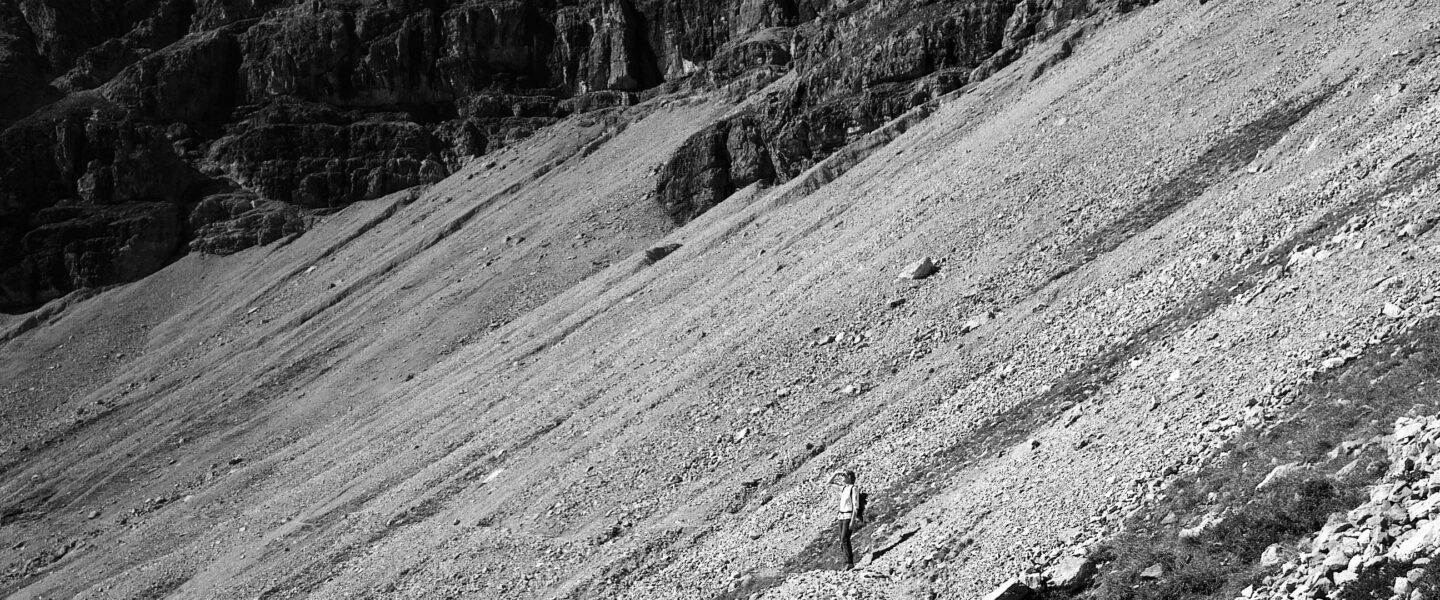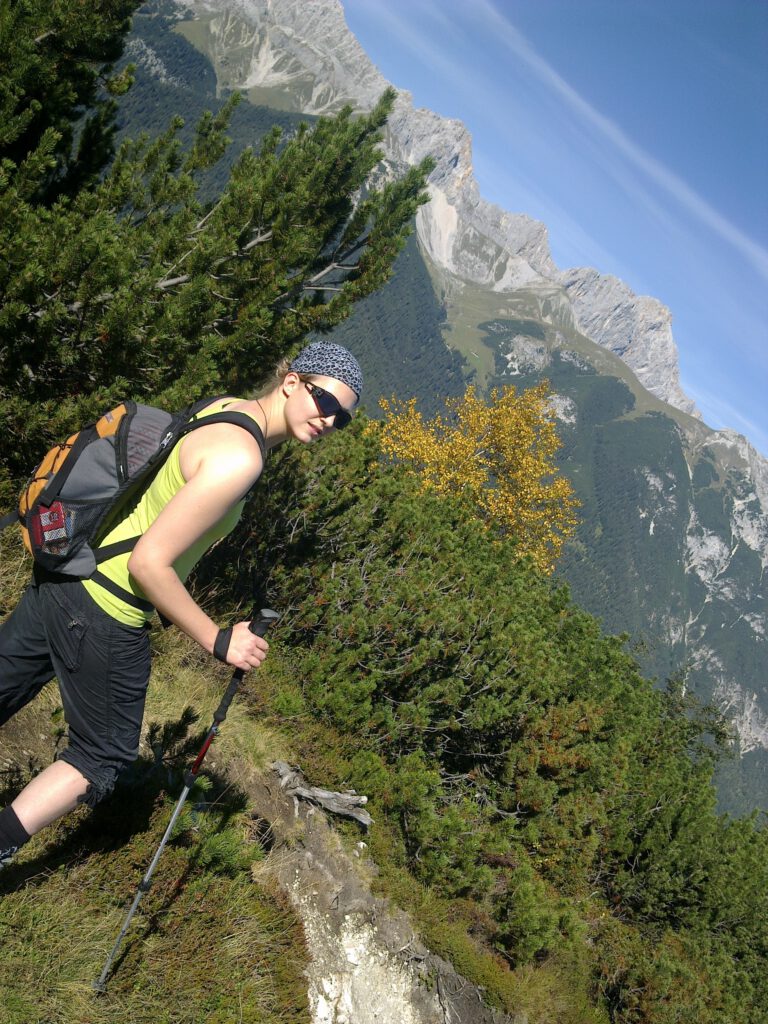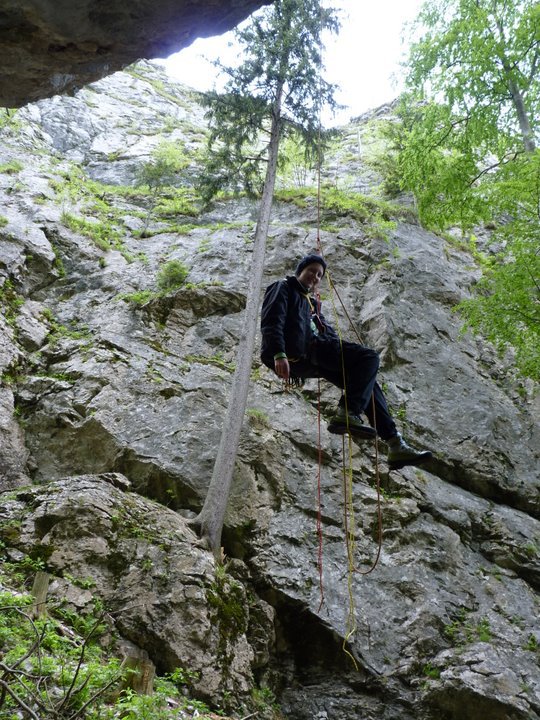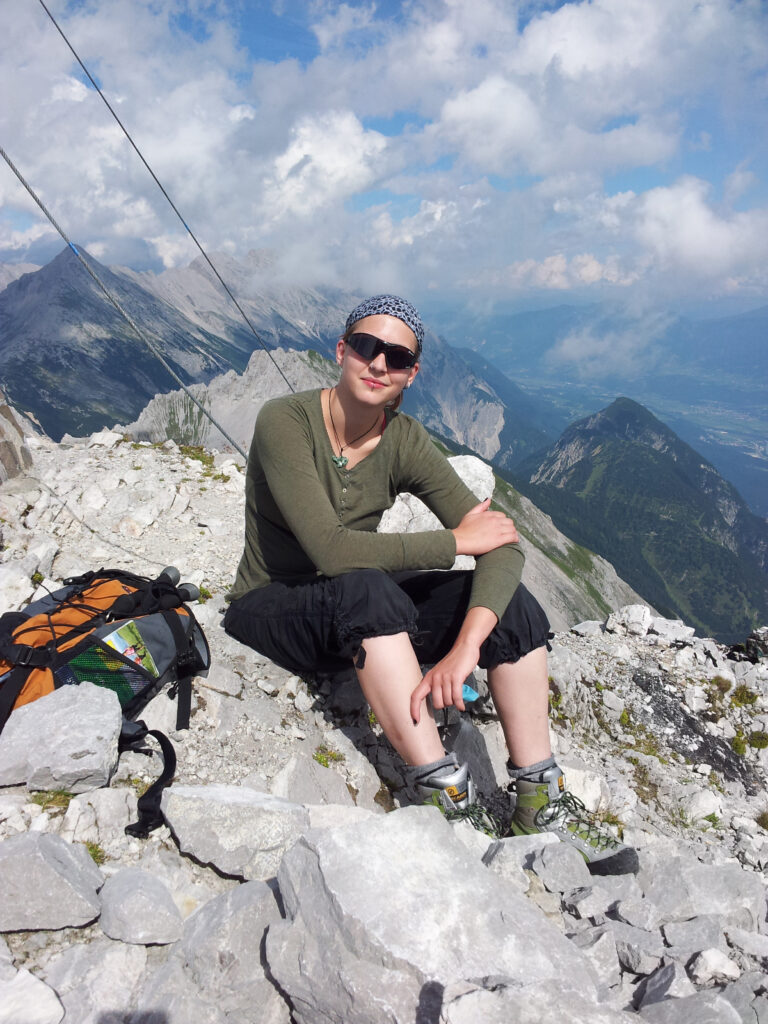Did you already read Part 1 of this newbie-series? Great 🙂 This article is also available in German. / Dieser Text ist auch auf Deutsch erschienen.
Today I will describe my very personal experiences and learnings about starting from scratch: New (first) job, new environment and new circle of friends. What is it like to be a newcomer to a city, to move to another country and to immerse yourself in a neighboring culture.
Disclaimer: Innsbruck is the capital city of Tyrol and surrounded by the mountains of the Alps. Tyrol is a state of Austria. Austria is next to Germany and it’s state Bavaria. Although German is spoken in both countries, there is clear slang or dialect in each of the states. I moved from Bavaria to Innsbruck in 2012. I will describe a few deeply personal observations in the following, but do not want to generalize. In my 6 years in Innsbruck, I met an estimated amount of 1500 people with loose points of contact (at the cash register, in the restaurant, at the doctor’s, on the tram, at awards celebrations, etc.), I had longer conversations with around 500 people (for applications, in the club, in the animal protection association etc.) and worked with ca. 150 people in various agencies and as a freelancer. After a few years in Innsbruck my efforts paid off with 10 good acquaintances and 3 friends. So the following is not even about one percent of all Innsbruck citizens. I am rather describing a general, personal observation around the small and large moments as life would wrote them.
From the front door up to the mountain
Before and during my studies, I loved being in the mountains with friends. Even my bachelor thesis and research revolved around an orientation system for the Alps.
While hiking I enjoyed the exertion, the push, the view and the feeling of my muscles and feet after a tour. The mix of strategy, strength and willpower attracted me in climbing. So back then, mountain sports challenged me physically and mentally with the right extent.
I wanted to know the possibility of being in the mountains and switch off there, whenever I be on my doorstep.
So I moved to Innsbruck in favor of my hobby, because I had time and leisure before. But in Innsbruck, as an employee, the energy for an excessive hobby gradually faded. Also, it was not much fun to be always alone on the mountains. Soon my priorities changed towards „professional occupation“, with only a bit of private life left. Soon I tried to find a place in Innsbruck, apart from mountain sports. And that was much harder than a day trip up and down the hill Nordkette (the Valley Range alongside Innsbruck) 🙂
The Capital of the Alps
Innsbruck. The capital of the Austrian region of Tyrol officially has 132,110 inhabitants (as of 2019 *). The region is dominated by Catholicism, was considered to be economically weak until about 60 years ago and is now mainly shaped by mountain tourism.
Although popular with many tourists, the small town in the Alps and its inhabitants remain strange to them. Of course, this is also true the other way round. Tyroleans get to know vacationers as the figureheads of their respective country. Symptomatically, for example, the prejudices between Tyroleans and Germans are carried to extremes in the satirical „Piefke Saga“ films**.
A small exchange between the rest of the world and Innsbrucks natives takes place academically. The colorful nation of students makes up almost 35% of the city’s population. They share bars, the mountains and the place in the evening sun at the Inn-river. But there is also a rather competitive housing market; for example, rents in Innsbruck are almost comparable to those in Munich (one of the most expensive housing marking in Germany). It might be very likely that someone would find a connection to other people and the city – by celebrating, studying and playing sports together – by being part of the Innsbruck student body. For many – especially German – high school graduates, the city is also considered a tip to start studying without Numerus Clausus (admittance to study based on final school grade). And usually the young academic people leave the city after graduating.
Most Tyroleans, on the other hand, spend their work and spare time in the same place with the same people they already know from kindergarten, school, choir, club or studies. They form the group of the „locals“ or „natives“ and face „all the other people“. The town and its surroundings live from mountain tourism. And a Tyrolean friend once said: „To make a career, you don’t come to Innsbruck. Unless you are a ski instructor or a mountain guide.“
So what if – like me back then – you don’t fit into any of the groups, i.e. „no student“, „no tourist“, no „mountain freak“ and audibly, means by dialect, „not from here“? What if you had come to find yourself in a new city, in a professional as well as private context?
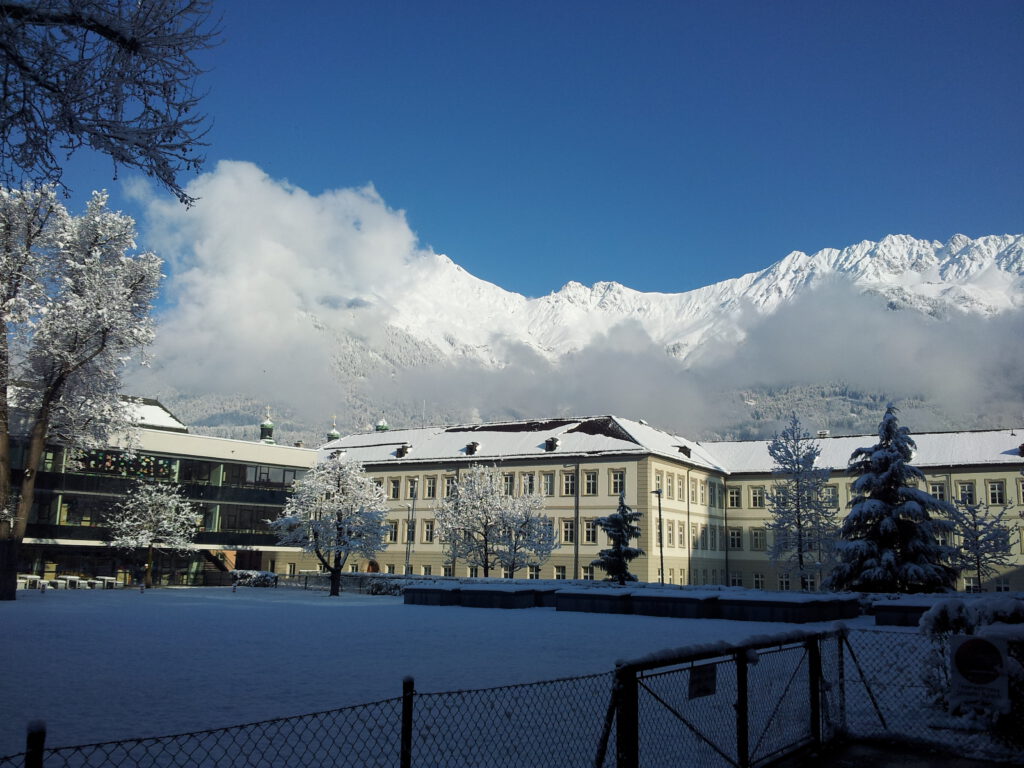
So, where are you from? Still I can’t escape the ghost of you (Innsbruck) …
If you move into the unknown, you are just as new in your work environment as you are in the city itself. It is generally known how difficult it can be to build a new private life and a circle of friends again after moving. And in cities too, life is becoming more and more anonymous these days. Mostly, we can’t prepare for both.
When I moved, I thought quite naive that Innsbruck and the attitude there might be comparable with those of other capital cities. Such as I had got to know during my studies (near Stuttgart in Germany), the Erasmus semester (Graz and Vienna, Austria) or during internships (in Munich and Augsburg, Germany). I thought „connection“ and thus also „arrival“ might work similarly to school, studies or during my internships: people are likeable, have common interests, meet and do something together.
The prejudices in the „Piefke Saga“-tragic comedies seemed to be more than a satirical fairy tale. They came across in Innsbruck in the most unlikely moments.
But I experienced Innsbruck’s people as closed, rejecting or even hostile towards my project „arriving“. My six years were often characterized by a feeling of „being different“, of „not belonging“ and of „being left out in the rain“. How did that manifest itself, for example? Finding an apartment was a challenge. Many job interviews were strange, the jokes were tendentious and the questions crossed the line. In case of illness one was fired. And even without any damage they tried to keep the entire rent deposit.
But there were also little, everyday things: it seemed to be a popular to send every „non-native“, while asking for help, in the wrong direction or to tell them that it will only take 10 minutes to the target. Finally, my favorite anecdote, about the impossibilities of „arriving“ or „connecting“; also because it seems so harmless:
Physiotherapist asks: “Weeeelll… you don’t come from here, do you? Where are you from?“
Older gentleman: “Yes, that’s right – actually from Bamberg. I’ve only lived in Innsbruck for 56 years. “ (Bamberg is a small city in Germany.)
More than a feeling
So only fifty-six years … For barely six years, I was ALWAYS “the new one”, “the other one”, the one “but you are not from here?” and then I had enough. Of course, I was potentially comparatively privileged because I was at least not visibly “different”. Only audible. Although Tyrolean and Bavarian speaking German, you could hear the difference (maybe synonyme to Britisch, Canadian and American English). Me, sounding “High German” to the Tyrolean ear, was considered subliminally by (most) Tyroleans as “Piefke” (coll .: a derisive or derogatory foreign term for German ethnic groups). It’s annoying in the long run.
And even if the questions about origin and current choice of study do not seem to be badly meant or understandable; or the „Piefke“-swearword can also be used jokingly, a certain feeling remained. It does not evoke curiosity, but a sense of separation. It is tendentious. It made different and lonely. It took two years to make friends. Humor is when you laugh anyway? Sometimes simply no longer. Only with significant resilience I could take those six years.
Tips and learnings: „Emigrate and arrive“
To understand how it feels to start a new life somewhere, you have to get out of the comfort zone. Get out of the securing structures or established networks (like school or university). And also for an indefinite period of time (no internship, exchange or Erasmus semester).
- How much time you give yourself to settle in, arrive and feel good in a new city or country is certainly individual. The next time I moved (after Innsbruck), I thought about what I wanted to achieve and how long I could live there without certain parameters. These parameters related to the location could be e.g. specific professional experience, the prospect of the next career step, intensive engagement with the hobby or a satisfying private life.
- I learned that nothing could have prepared me for my first “newbie” experience. And with every move I have made since then, I have become more relaxed. I am prepared to be alone and sometimes lonely. I can take my time to feel the city and its people. And if it gets annoying: I successfully searched for like-minded people online and discovered the cities and met new people this way.
- If you emigrate, move and want to “just try yourself out” (that’s perfectly ok, often wonderful and full of experiences), an exit-emergency money is important. An amount that allows another move or retreat. I had used it up and I would like to take this opportunity to thank my parents and the privilege of their help.
Goodbye or see you again, Innbruck?
Even though I don’t really miss the city and the move, rather a departure, was absolutely necessary to „move on“, the time there was important for my personal development and I wouldn’t want to miss that. Today I often think of my time in Innsbruck as a warning or simply as a reminder; Because each of my professional commitments and private experiences at that time is still instructive to the present. And of course, where there is shadow, there is also light. Not everything was that bad.
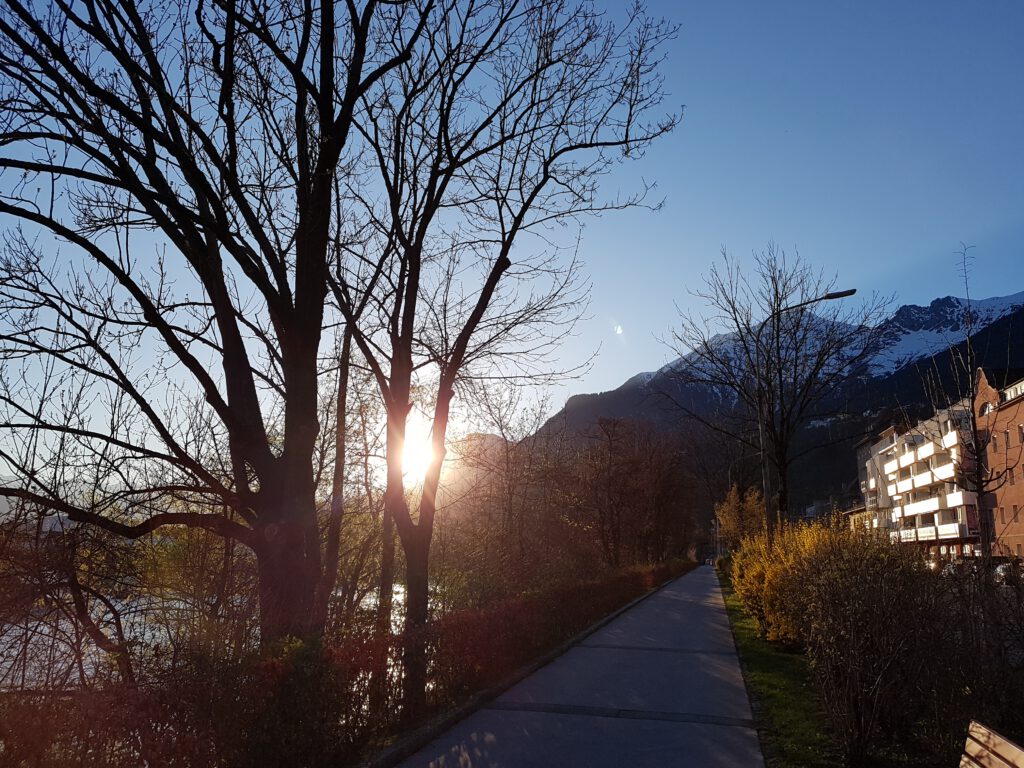
Looking back, I withdraw my present attitude, power and strength from the events, stories and observations. And I’m grateful for that. It makes me the inviting person that I can be today – thanks to my today’s environment.
Personally, I appreciate a city and a working environment that are easy to connect with and where you can easily make some kind of friends. In which there are many different people from many different regions. I am stimulated by a certain openness, curiosity about the unknown and a welcoming culture, both privately and professionally. The more colorful, inclusive and diverse, the better. In such circumstances I feel good and comfortable, I flourish, I participate and I grow.
Part 3 Like a tiger defying the laws of gravity, I will be about my experience of moving to a new city and being new to the world of work: It will be about companies, attitudes and being welcome in the professional environment. What if the city soon has little to offer, no opportunities or challenges, becomes too small for your own ambitions. What if you, your ideas and everything new is not welcome? How to work self-employed? How the get out of vicious circle of trying something new, getting small money and no responsibility? Read the final story here
Sources
*) Innsbruck’s population figures from the official city portal (in German: Innsbruck.gv.at)
**) Piefke Saga – Movies and their topicality (in German: Wikipedia and dossier in Tiroler Tageszeitung)
